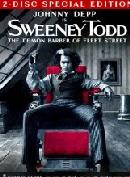HOME PAGE
SITE GUIDE
SEARCH
ADVERTISING AT CURTAINUP
REVIEWS
FEATURES
NEWS
Etcetera and
Short Term Listings
LISTINGS
Broadway
Off-Broadway
NYC Restaurants
BOOKS and CDs
OTHER PLACES
Berkshires
London
California
New Jersey
Philadelphia
Elsewhere
QUOTES
TKTS
PLAYWRIGHTS' ALBUMS
LETTERS TO EDITOR
FILM
LINKS
MISCELLANEOUS
Free Updates
Masthead
Writing for Us
A CurtainUp Los Angeles Review
Courting Vampires
| Death's my sentence and life's my crime.
— Nina
|
Kurt Boetcher's scenic design at the Boston Court Theatre has floor panels that reveal tables or graves and a door that descends from the ceiling and vivid projections by Jonathon Stearns depict the fireworks Nina gleefully boxes with. Director Jessica Kubzansky doesn't let the play stray too far into whimsy. The sisters' mother has run away and their father is a victim of progressive phobias. Rill, who has a job as a fact-checker and has buried her father's shotgun in the backyard, seems the stable one between the fantasies of the father and the romantic fixations of Nina. Rill's voice has the tone of someone telling a horror story. who sees things as she wants to create them and always knows exactly where that shotgun lies. She won't give people their real names, instead calling them Dr. Whosit and Lawyer Whatsit. As she puts it: "No name. It will stick. I'd rather it didn't."
A trial takes place in Rill's imagination and the expert witness she calls is a real vampire, though hardly cast in the traditional mode. All the male parts are played by one vastly versatile actor, Bo Foxworth. The case could be made that all men are the same to Rill, beginning with her father. Nina's fey sensibility feeds into the other-worldly ambiance of the play. She calls her fatal love, Jim Slade, "the man I want to undo me" and says when he made love to her in his vampire way, he whispered "Welcome to the Twilight."
Schellhardt's play uses reality as the seeding ground for the myths we weave around passion. Her writing has a lyric quality. Rill says furiously of her dying sister: "What's been lost here. Cannot be. Measured. It includes skipping stones and fireflies and races, barefoot, over rock. It includes tap shoes and footlights and a thousand clapping hands. It includes, in no particular order: hair brushes, road trips, leaf piles, pills, barricades, banisters, showers, swings, boats made of newsprint and men made of snow and moreover. It includes a future. A vast unrealized future. So tell me. You tell me. How do you measure that?"
Rill's symbiotic relationship with her sister ends with what may be Rill's dream, though it's Nina's line: "There will always be us, Rilly." Although all the characters seem bizarre, their weirdness is of a piece with the metaphorical flavor Schellhardt uses to color the tragic reality of her story.
|
Courting Vampires Playwright: Laura Schellhardt Director: Jessica Kubzansky Cast: Carey Peters (Rill), Maya Lawson (Nina), Bo Foxworth (Man) Scenic Design: Kurt Boetcher Costume Design: E. B. Brooks Lighting Design: Tim Swiss Original Music and Sound Design: Bruno Louchouarn Projection Design: Jonathon Stearns Prop Design: Nick Santiago Production Stage Manager: Hope Villanueva Running Time: Two hours, 15 minutes, one intermission Running Dates: May 9-June 7, 2009 Where: The Theatre@Boston Court, 70 N. Mentor Ave., Pasadena. Reservations: (626) 683-6883. Reviewed by Laura Hitchcock on May 9, 2009. |
|







